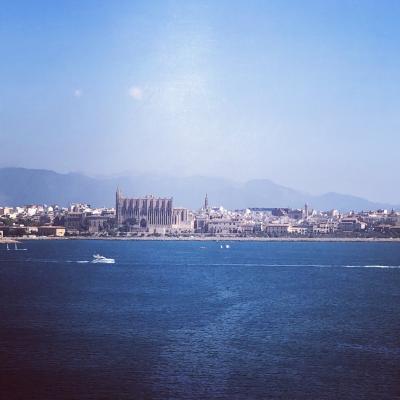How does the Mediterranean climate influence agricultural production on Mallorca?
Similar Topics
mediterranean climate mallorca
mallorca agricultural production
drought-resistant crops
olive oil production
sustainable farming mallorca
mallorca wine cultivation
seasonal agriculture cycles
mallorca microclimates
The Mediterranean climate of Mallorca plays a significant role in shaping the island’s agricultural production, fostering a thriving environment for a variety of crops. Characterized by hot, dry summers and mild, wet winters, this climate provides an ideal growing season for many Mediterranean staples. The prolonged warmth and abundant sunshine during the summer months encourage the cultivation of drought-resistant plants like olives, almonds, and grapes, which are integral to the local agricultural economy. These crops have adapted well to the periodic dry conditions, allowing farmers to produce high-quality olive oil and wine that are renowned both locally and abroad.
In addition to these traditional Mediterranean crops, the mild winter temperatures help extend the growing season for vegetables and fruits, such as tomatoes, artichokes, and citrus fruits. The rainfall during the cooler months replenishes the soil moisture, which is crucial for sustaining agricultural activities before the onset of the dry summer period. This seasonal pattern reduces the need for excessive irrigation, promoting more sustainable farming practices. Moreover, the diverse microclimates around Mallorca, influenced by its varied topography and proximity to the sea, allow for a range of specialized agricultural products to flourish, from orchard fruits in the valleys to aromatic herbs along the coastal areas.
The Mediterranean climate also influences the rhythm of agricultural life on the island, with planting and harvesting schedules closely aligned to the seasonal cycles. Farmers must carefully manage their water resources and soil conservation efforts to cope with the summer droughts, often utilizing traditional techniques that have been honed over centuries. Overall, the climate’s moderate conditions enable Mallorca to maintain a rich agricultural landscape that not only supports its local economy but also preserves the cultural heritage tied to its land and produce. This enduring connection between climate and agriculture continues to define Mallorca’s identity as a region of fertile lands and abundant natural beauty.
In addition to these traditional Mediterranean crops, the mild winter temperatures help extend the growing season for vegetables and fruits, such as tomatoes, artichokes, and citrus fruits. The rainfall during the cooler months replenishes the soil moisture, which is crucial for sustaining agricultural activities before the onset of the dry summer period. This seasonal pattern reduces the need for excessive irrigation, promoting more sustainable farming practices. Moreover, the diverse microclimates around Mallorca, influenced by its varied topography and proximity to the sea, allow for a range of specialized agricultural products to flourish, from orchard fruits in the valleys to aromatic herbs along the coastal areas.
The Mediterranean climate also influences the rhythm of agricultural life on the island, with planting and harvesting schedules closely aligned to the seasonal cycles. Farmers must carefully manage their water resources and soil conservation efforts to cope with the summer droughts, often utilizing traditional techniques that have been honed over centuries. Overall, the climate’s moderate conditions enable Mallorca to maintain a rich agricultural landscape that not only supports its local economy but also preserves the cultural heritage tied to its land and produce. This enduring connection between climate and agriculture continues to define Mallorca’s identity as a region of fertile lands and abundant natural beauty.
🧩 Related Questions
Related Question
How did children’s participation in processions strengthen their connection to Mallorcan cultural heritage?
Related Question
Are pets allowed in Mallorca parks where the ombu tree can be seen, such as Jardines de Alfabia or Soller Botanic Garden?
Related Question
What strategies do Mallorca farmers use to protect sheep from heat stress during the island’s hot summer months?
